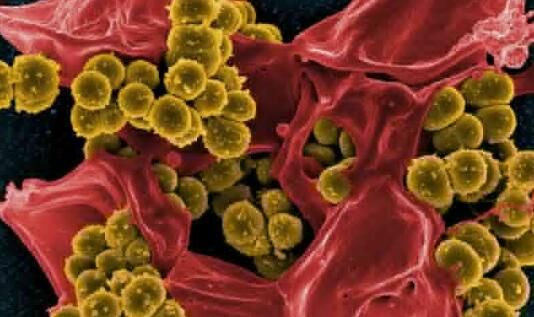Recently, a research report published in the international magazine PNAS, scientists from the Duke University Medical Center found that a particular genetic predisposition may increase the risk of an individual successfully resisting drug-resistant staphylococcus aureus infection. The findings help researchers understand the specific genetic factors that make certain people susceptible to MRSA (methicillin-resistant staphylococcus aureus) infection and help researchers find new therapy to defense against MRSA infection.
Researcher Vance Fowler said that the antibiotic-resistant Staphylococcus aureus infection is becoming more popular today, and it is urgent for scientists to understand which groups of people are most susceptible to these pathogens and why they are susceptible. This study provides strong evidence that a particular genetic mutation appears to help MRSA patients resolve their body's blood infections.
The researchers studied two closely matched patients based on age, gender, health status, and other risk factors for MRSA blood infection, and identified 68 patients, half of whom had persistent MRSA infection and the other half were able to effectively remove MRSA infection from their body's blood. The researchers sequenced the whole exome and found that approximately 62% of patients who are able to clear MRSA infection carry this genetic mutation, while only 9% of patients with persistent infection carry this mutation.
This genetic mutation is located in the DNMT3A region of chromosome 2p, which appears to allow the patient's immune response to better address the MRSA bloodstream infection in the patient's body. One of the immune components that may be affected by this DNMT3A mutation is IL-10, an anti-inflammatory cytokine that reduces the host's response to S. aureus infection. Now researchers have found that the appropriate level of IL-10 is critical for regulating host immune responses, and excess IL-10 is directly related to body tissue damage and even death.
In patients with genetic mutations, serum levels of IL-10 are continuously examined, suggesting that the immune response of host may be able to help clear MRSA infection. The researchers then performed correlation tests in animal models by inhibiting the methylation of regulatory genes, which increased the susceptibility of animal models to S. aureus infection.
The researcher Fowler said that, “In this study, we identified a specific DNMT3A mutation that increases the body's ability to resolve MRSA infections. The molecular mechanism behind it appears to be an increase in the level of methylation in the gene regulatory region and a decrease in the level of the anti-inflammatory cytokine IL-10.”
Reference:
- Felix Mba Medie, Batu K. Sharma-Kuinkel, Felicia Ruffin, et al. Genetic variation of DNA methyltransferase-3A contributes to protection against persistent MRSA bacteremia in patients," PNAS (2019).doi:10.1073/pnas.1909849116


